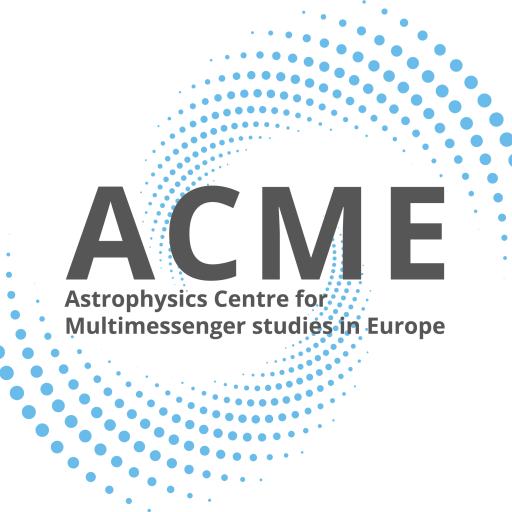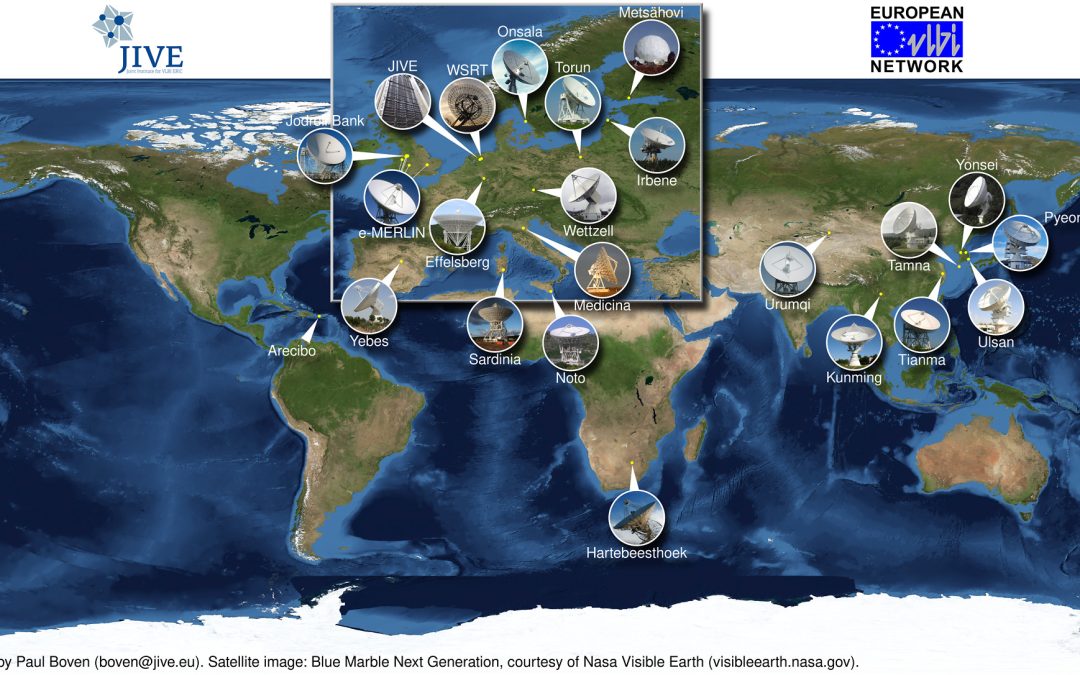The European VLBI Network (EVN)
The EVN is a Very Long Baseline Interferometry (VLBI) network of radio telescopes located primarily in Europe, Asia and South Africa, operated by an international consortium of institutes. It provides very high sensitivity images at angular scales of (sub-)milliarcseconds in the radio domain.
EVN proposals may also request joint e-MERLIN and EVN observations for an improved uv-coverage at short spacings, significantly increasing the largest detectable angular size to arcsecond scales. Further improvement of the uv-coverage may be achieved in global VLBI observations when the EVN observes jointly with NRAO/GBO telescopes. Joint observations with the Australia Long Baseline Array are possible as well, but these require separate proposals to both arrays.
EVN observations may be conducted with disk recording (standard) or in real-time correlation (e-VLBI). Per year, the EVN observes regularly during three sessions of approximately 21 days each and 10 separate days are available in e-VLBI mode.
The submission deadline is 1st of October 2025, 16:00 UTC.
The EVN facility is open to all astronomers. Astronomers with limited or no VLBI experience are particularly encouraged to apply for observing time. Student proposals are judged favourably by the EVN Programme Committee. Support with proposal preparation, scheduling, correlation, data reduction, and analysis can be requested at the Joint Institute for VLBI ERIC (JIVE). Proposal submission is done through the Northstar online tool.
For more information please consult the EVN web pages.

